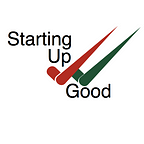2020 Impact Investing Trends: Faith-Based Investor Engagement
Written by Brady Press
We are barely into 2020 and a lot has already happened in the world of impact investing. Over a series of articles, we are identifying some of the key trends we see for the coming year.
In this article, we highlight the ongoing importance of faith-based investors to the world of impact investing. Their incredible wealth, coupled with their early adoption and leadership in responsible investing, is reason to consider faith-based investors as potential key players in the impact investing space.
Faith-based investors — which include foundations, family offices, fund managers, pension funds, universities, local parishes and national and international organizations — also present a natural alignment with impact investing and are increasingly interested in tackling environmental and social issues. That said, current involvement in impact investing is not as established as it could be.
The GIIN Looks Into Further Engaging the Faith-Based Sector
The Global Impact Investing Network (GIIN) released a report in January — Engaging Faith-Based Investors in Impact Investing — which was the institution’s first report on religious institutions since 2010. According to the report, while faith-based investors have long invested responsibly through shareholder advocacy, divestment, and negative screening, their impact investment portfolios are not developed. Faith-based investing could contribute greatly to the space and help progress global development agendas like the SDGs and the Paris Agreement, but several challenges remain in securing their involvement:
“While impact investments are available across asset classes and the risk-return spectrum, several faith-based investors interviewed perceived impact investing as only available through private market investments or as generating below-market returns. These perceptions may explain some of the key challenges reported by faith-based investors.
Three of the top four challenges to pursuing impact investing relate to financial characteristics, including lack of impact investments with appropriate risk-return profile, challenges finding investment opportunities of the right size, and concerns about exit options/ liquidity. Again, these results could largely be driven by investors’ perceptions about private equity, rather than impact investments across asset classes, though further inquiry is needed to confirm this definitively. Another top challenge cited relates to non-financial concerns, specifically challenges finding investment opportunities that match faith tenets and values.”
Considering challenges, it is important to note the wide opportunity that exists to address current setbacks and involve the faith-based sector, as outlined by the GIIN. For one, rather than accepting different values among faiths as an obstacle to faith-based engagement, impact investing could serve as an avenue to illuminate shared values. This ImpactAlpha article (paywall) notes that both Jewish and Islamic principles encourage acceptance of the presence of risk in making investments, while Catholic investors are generally more risk-averse.
Another challenge outlined in the report — the current lack of resources to guide the faith-based sector — poses a tangible solution. More than “50% of respondents indicated research and data on the financial and impact performance of impact investments, and convening with and learning from other impact investors, would be significantly helpful resources.”
For more information on how to engage the faith-based sector, the report lists several recommended strategies:
- Build the case for impact investing as a tool to further faith-based organizations’ missions and values.
- Equip faith-based investors with the means to access relevant impact investment products.
- Partner to amplify work and increase reach to faith-based investors.
Catholic Impact Investors Are Leading the Charge
Of the faith-based investors who are established, the Catholic Impact Investing Collaborative (CIIC) is a key player. According to a National Catholic Reporter article, the CIIC, which was established in 2014 and is made up of religious communities, Catholic healthcare systems, educational institutions and philanthropic organizations, now manages over $50 billion in assets. The article details the CIIC and its members’ leadership in impact investing:
“This past fall, six of the bodies associated with CIIC, hoping to inspire other Catholic organizations, signed on to a pledge to promote investments with a social mission focus. More signer announcements are anticipated this year.”
The CIIC’s pledge, in addition to promoting impact investing among Catholic organizations, is calling for “‘meaningful allocation targets for impact investments, as well as measurement and disclosure of investments’ impact,” according to an ImpactAlpha article.
Pledge member and Catholic impact investor, Mercy Investment Services (the investment management program of the Sisters of Mercy of the Americas), is owning its commitment by designating its entire portfolio to social issues and disclosing details of private equity impact investments. To date, the investment manager has (paywall):
“ Co-founded Investors for Opioid Accountability, which has filed 50 resolutions on board oversight of opioid risks at pharmaceutical companies… and made 60 below-market rate investments benefiting the economically poor, especially women and children.
The fund’s early investments include El Salvador-focused Azure Source Capital; Shared Interest, a Southern Africa-focused capital provider to small businesses; and First Nations Oweesta Corporation, which finances Native community development financial institutions.
Its Environmental Solutions Fund, which has helped create 5.1 gigawatts of clean energy capacity since 2015, has backed Berkeley Energy, a renewable energy developer in the Philippines, Indonesia and India; U.S.-based vertical farm startups AeroFarms and Living Green Farms; and electric vehicle charging network Volta.”
Want More on This Topic?
To keep up to date on the intersection of faith-based investors and impact investing, follow ImpactAlpha’s audio series: “The Call on faith-based investing” (paywall), which is being sponsored by the Global Impact Investing Network (GIIN).
Brady Press is an Associate Director at Changing Our World, where she specializes in building strategic corporate citizenship programs. She is a consultant to SDGCounting and StartingUpGood, and is currently researching how COVID-19 is affecting the Sustainable Development Goals.
